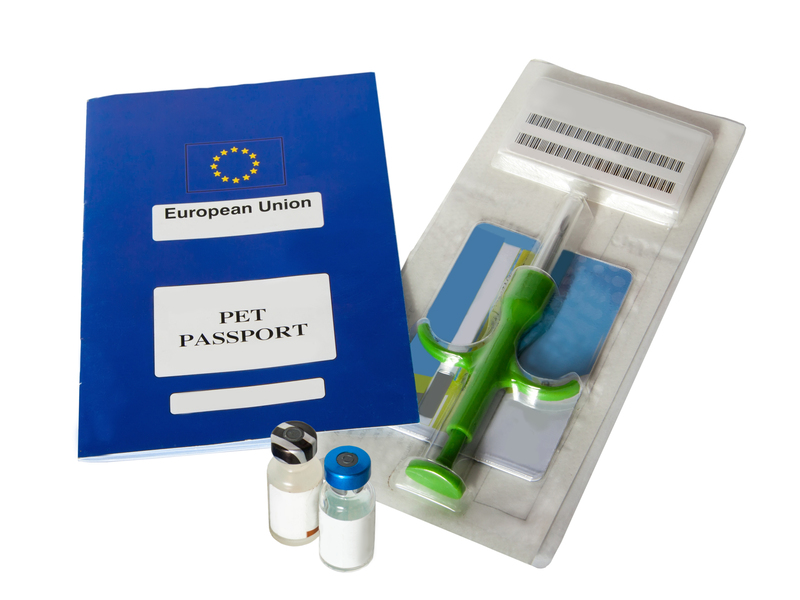Tuned for Success: The Professional Approach to Piano Moving
Posted on 21/05/2025
Tuned for Success: The Professional Approach to Piano Moving
Pianos are more than just musical instruments--they are cherished investments, family heirlooms, and artistic masterpieces. When it comes time to relocate a piano, whether it's across town or across the country, a professional approach to piano moving is essential for preserving both its physical structure and its distinctive sound.
Understanding the Intricacies of Piano Moving
Moving a piano is not akin to moving a regular piece of furniture. With internal mechanisms consisting of thousands of moving parts, sensitive strings, and finely balanced components, it's no wonder piano relocation is a specialized job. Pianos are delicate instruments that demand skill, experience, and the right equipment for a safe transition from one location to another. Even the smallest mishap during the moving process can lead to costly repairs or irreversible damage. That's why so many seek out professional piano movers, tuned for success in every aspect of the job.

The Challenges of Piano Relocation
Let's take a deeper look at why piano moving presents unique challenges:
- Weight and Size: Upright pianos can easily weigh 300-500 pounds, while grand pianos may tip the scales at over 1,200 pounds.
- Fragility: The exterior is susceptible to scratches, while the interior contains delicate actions, strings, and hammers.
- Shape: The asymmetrical and often awkward design of pianos makes them tricky to maneuver through doorways and around tight corners.
- Tuning Sensitivity: Any jarring movement can affect the piano's tuning and overall tonal quality.
- Value: Antique or concert-quality pianos command high values, making their safe transport imperative.
The Importance of Using a Professional Piano Moving Service
Why trust your piano to a general mover or a group of friends? Here's what sets a professional piano mover apart:
- Specialized Training: Piano movers are taught the specific techniques for safely lifting, transferring, and securing all piano types.
- Proper Equipment: Tools such as piano dollies, ramps, skid boards, padding, and custom straps are specifically designed for the demands of piano moving.
- Insurance: Professional companies carry insurance policies that protect your instrument against unexpected accidents.
- Experience: With years of moving every size and style, piano movers understand common pitfalls and how to prevent them.
Key Steps in the Professional Piano Moving Process
Here is an outline of the meticulous, step-by-step process a trustworthy piano moving company will follow:
1. Pre-Move Assessment
Every piano move begins with a careful assessment. Movers will examine the piano type, size, path of travel, entryways, and any hurdles like stairs or elevators. They'll also measure all necessary spaces and plan out the safest approach for removal and delivery.
2. Preparation and Protection
Before any lifting occurs, the piano is thoroughly protected:
- Wrapping: Blankets and high-density padding shield both the outer finish and internal components.
- Disassembly (if necessary): For grand pianos, this may mean carefully removing the legs, pedals, and lid to prevent damage and ease transportation.
- Securing Parts: All moving parts, like the keyboard cover and music stand, are taped or wrapped to prevent shifting.
3. Lifting and Transporting
The actual move involves:
- Team Coordination: At least two or more trained movers work together, each assigned a specific role for lifting and guiding the piano.
- Piano Dollies and Skid Boards: Specialized equipment distributes the piano's weight and helps navigate over uneven terrain, stairs, or tight corners.
- Securing for Transport: In the moving vehicle, the piano is strapped down to prevent shifting while in motion. The environment inside the truck is controlled to avoid exposure to extreme temperatures or humidity that could damage the instrument.
4. Delivery and Setup
Upon arrival:
- The movers carefully reassemble the piano if it was disassembled.
- They place it in the desired location and ensure it's perfectly leveled on its legs or casters.
- A final inspection ensures the piano is intact, and advice is given on allowing the piano to acclimate before retuning.
Types of Pianos: Special Considerations
Not every piano is the same, and each type calls for its own unique moving approach:
- Upright Pianos: Compact but still heavy, these require careful navigation, especially in small apartments or down staircases.
- Baby Grand & Grand Pianos:
- Grand pianos typically necessitate disassembly, with legs and lyre removed and the instrument placed on its side using a piano board.
- Baby grands, though smaller, still require similar care and specialty equipment.
- Digital and Player Pianos: These often contain sensitive electronics that need careful handling to avoid damaging circuitry or peripherals.
- Antique or Restored Pianos: These prized instruments may require extra padding, climate-controlled transport, and white-glove handling.
Why DIY Piano Moving is a Risk You Shouldn't Take
Tempted to save money by moving your piano yourself? Here are a few reasons why the professional approach is always the wise investment:
- Personal Safety: Lifting hundreds of pounds exposes the untrained to serious injuries, from strained backs to crushed fingers.
- Instrument Safety: One slip can send the piano tumbling, causing permanent structural or aesthetic damage.
- Property Damage: Doors, floors, and walls can all get damaged during an uncontrolled move.
- Lack of Insurance: If you damage the piano, you're responsible for repairs or replacement--no coverage, no exceptions.
Choosing a Trusted Piano Moving Company--Key Factors
How can you ensure the best outcome for your cherished instrument? Use these guidelines to pick a mover who is tuned for success:
- Experience and Reputation: Look for companies that specialize in piano moving and have positive reviews or testimonials.
- Insurance and Licensing: Confirm coverage for both your property and the instrument during the entire moving process.
- Transparent Pricing: Get an upfront quote based on accurate information about your piano and both locations.
- Professional Equipment: Ask about the tools and vehicles the company uses--skid boards, ramps, custom padding should be standard.
- Customer Service: The right mover will answer all your questions and recommend the best course of action for your unique situation.
Tuned for Success: Aftercare and Tuning Post-Move
Once your piano is safely positioned in its new home, your work isn't quite done. Pianos are sensitive to changes in environment, especially temperature and humidity. Here's what the experts recommend for post-move care:
- Acclimate: Wait at least 2-3 weeks before retuning to allow the piano's wood and strings to adjust.
- Professional Tuning: Extreme movement or changes in humidity may affect tuning--call a registered piano technician to restore your instrument's perfect pitch.
- Monitor the Environment: Keep the piano away from windows, vents, and direct sunlight to minimize future tuning issues.
- Regular Maintenance: Have your piano checked annually for tuning, voicing, and regulation by a professional, particularly after a move.

Frequently Asked Questions About Professional Piano Moving
-
Q: How much does it cost to move a piano?
A: Costs vary based on the piano's size, type, moving distance, and any obstacles (like stairs). Average local moves range from $200-$1,200. Always request an itemized quote. -
Q: How long does it take to move a piano?
A: Local moves can take 2-4 hours; longer if there are stairs or disassembly involved. Cross-country or international moves will take significantly longer, accounting for transit and setup times. -
Q: Do all movers offer insurance?
A: Not all moving companies offer full coverage for instruments. Verify insurance details and documentation in advance. -
Q: Can you move a piano in the rain or extreme weather?
A: Professional piano movers are trained to protect instruments in adverse conditions, but excessive humidity or freezing weather can risk damage. Moves may be rescheduled for safety or extra precautions may be adopted. -
Q: How should I prepare my piano before movers arrive?
A: Remove all items from the piano top, close and lock the keyboard cover, and clear pathways for the movers. Do not attempt to remove legs or pedals yourself.
The Professional Approach--Tuned for Success Every Step of the Way
The safe relocation of your piano is a task best left to those who are tuned for success. By choosing expert piano movers, you secure the future of your beloved instrument, retain its musical beauty, and spare yourself the risk, stress, and potential costs of a do-it-yourself disaster. Remember, when your piano arrives intact and in tune, the investment in professional care pays for itself every time you sit down to play.
Conclusion: Trust the Experts for a Harmonious Move
Whether you're a concert pianist, music school, or a passionate hobbyist, ensuring your piano's safety during a move is paramount. Don't let your piano move fall flat--choose a professional approach, and stay perfectly tuned for success from start to finish. Investing in professional movers not only protects your valuable instrument but also gives you peace of mind, knowing that every note will ring true in its new home.
Ready to move your piano? Contact trained, insured, and experienced piano moving professionals to guarantee a harmonious relocation experience and protect your prized instrument for years to come.
Latest Posts
Effective Freezer Care When It's Not in Service
Ace Your Moving Day with Expert Packing Techniques
Sparkling Clean: Pre-Move House Cleaning Techniques



